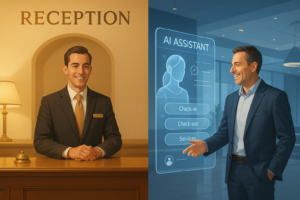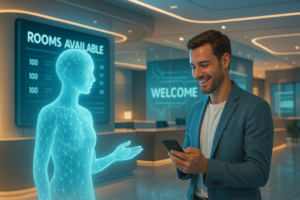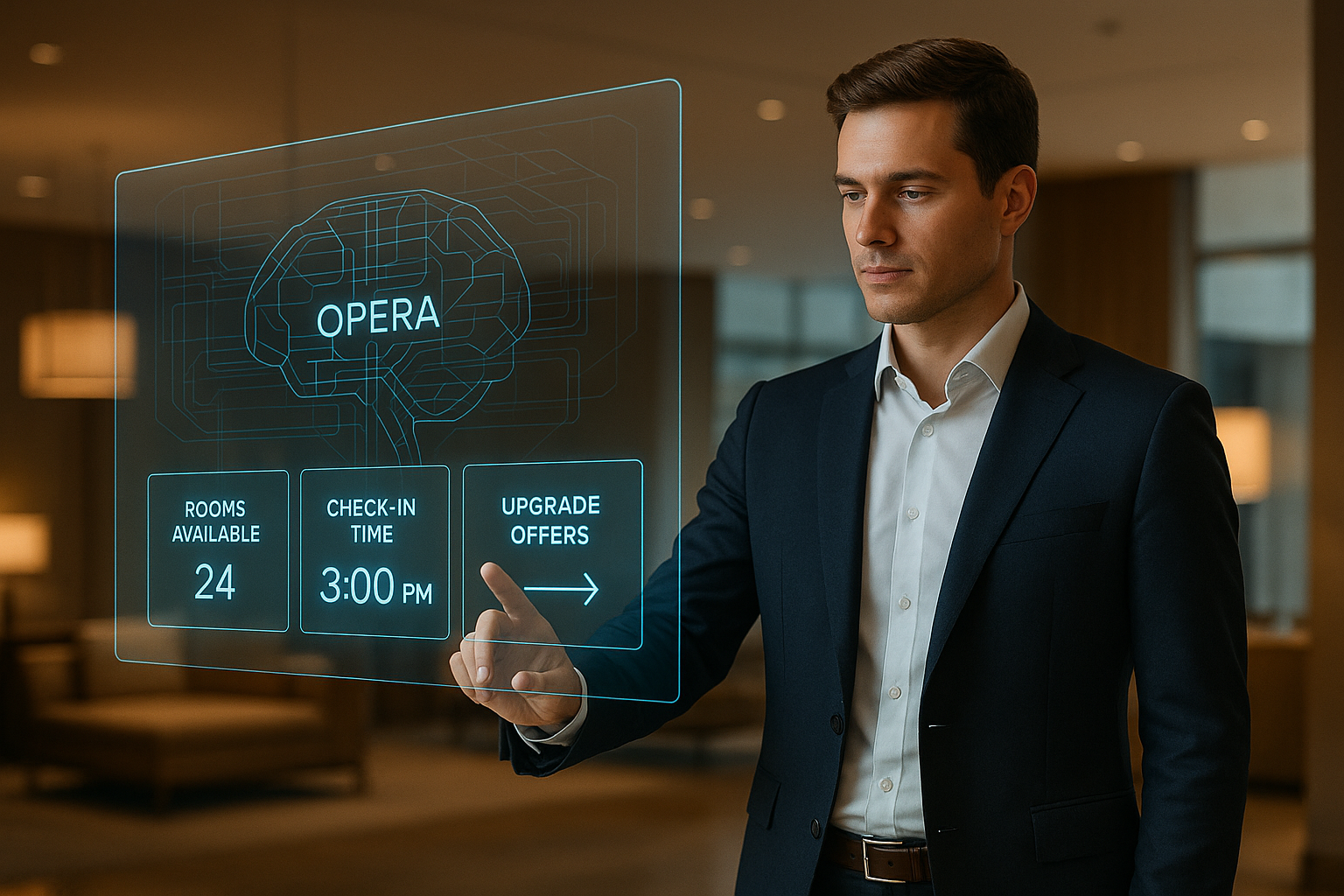For decades, Oracle OPERA PMS has stood as the core system of record for hotels around the world — from luxury resorts to urban business chains. Yet, while OPERA captures everything a hotel needs to run efficiently, it often remains invisible to the guest.
In today’s landscape of 24/7 digital expectations, that invisibility is becoming a limitation.
The question forward-looking operators must ask is this:
How can we make the intelligence inside OPERA more accessible to the people it ultimately serves — our guests?
Table of Contents
What OPERA Knows, But Guests Don’t See
OPERA is a powerhouse of structured hospitality data:
- Room types, availability, and pricing
- Guest history, loyalty profiles, preferences
- Operational details — from housekeeping status to rate codes
But without a communication layer that makes this information actionable and understandable to the guest, it stays locked away — usable only by staff through internal terminals.
Bridging the Gap: Interface, Not Replacement
We’re not talking about replacing OPERA. We’re talking about amplifying it.
Modern hotels can integrate real-time conversational tools — messaging widgets, AI-based front desk assistants, or smart booking flows — that read from OPERA in real time, extract relevant data, and present it clearly to the guest.
This unlocks capabilities such as:
- Instant availability checks via chat
- Contextual answers about check-in time or breakfast options
- Seamless pre-arrival upgrades and early check-in offers
- Self-service journeys that reduce front desk congestion
Strategic Benefits for Tech-Forward Hotels
- Reduced friction: Guests no longer need to call or wait in line to get basic answers
- Increased conversions: Frictionless upgrade or add-on suggestions during the booking journey
- Staff efficiency: Fewer repetitive requests, more time for real guest care
- Brand consistency: Guests experience the hotel’s personality — even through digital channels
The Future: Transparent Systems, Empowered Guests
OPERA doesn’t need to change — it needs to speak.
When systems like OPERA are connected to intuitive frontends — chatbots, mobile interfaces, voice systems — hotels start to behave like truly intelligent organizations.
Not only does this drive operational efficiency, it elevates the brand, improves reviews, and builds long-term loyalty.
Conclusion
If OPERA is the brain of the modern hotel, then it’s time to build the mouth and ears.
Let your systems serve not just your staff — but your guests. Because data is only powerful when it’s experienced.



